Welcome to “The curious observer’s guide to quantum mechanics”–featuring particle/wave duality.
Category: quantum physics – Page 786

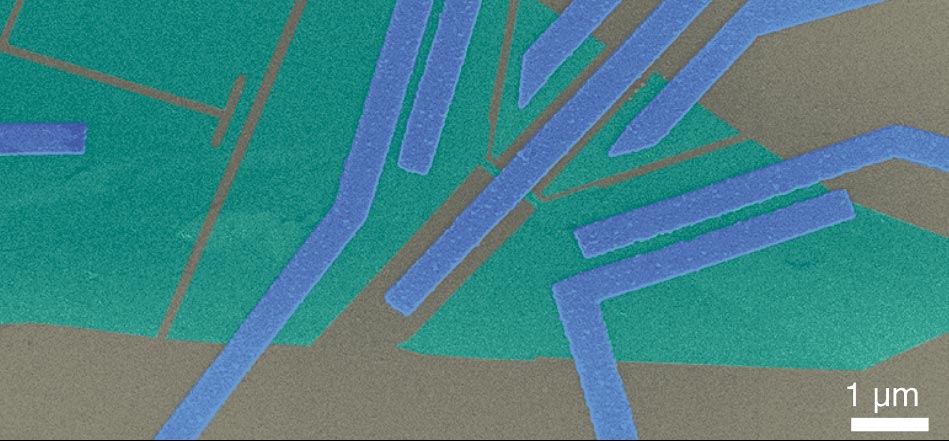
Quantum Entanglement of Electrons Using Heat
Quantum entanglement is key for next-generation computing and communications technology, Aalto researchers can now produce it using temperature differences.
A joint group of scientists from Finland, Russia, China, and the USA have demonstrated that temperature difference can be used to entangle pairs of electrons in superconducting structures. The experimental discovery, published in Nature Communications, promises powerful applications in quantum devices, bringing us one step closer towards applications of the second quantum revolution.
The team, led by Professor Pertti Hakonen from Aalto University, has shown that the thermoelectric effect provides a new method for producing entangled electrons in a new device. “Quantum entanglement is the cornerstone of the novel quantum technologies. This concept, however, has puzzled many physicists over the years, including Albert Einstein who worried a lot about the spooky interaction at a distance that it causes,” says Prof. Hakonen.

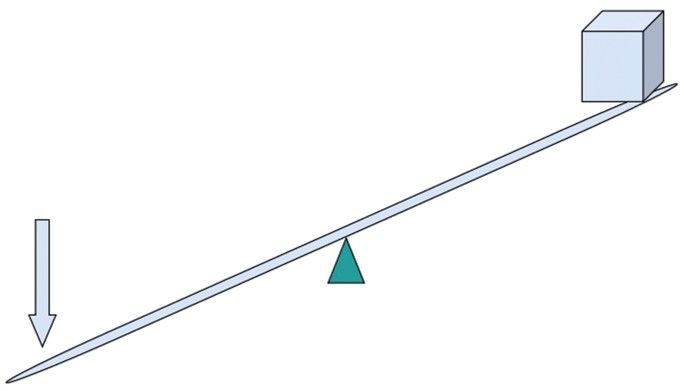
Energy transmission using recyclable quantum entanglement
Circa 2016
It is known that faster-than-light (FTL) transmission of energy could be achieved if the transmission were considered in the framework of non-relativistic classical mechanics. Here we show that FTL transmission of energy could also be achieved if the transmission were considered in the framework of non-relativistic quantum mechanics. In our transmission protocol a two-spin Heisenberg model is considered and the energy is transmitted by two successive local unitary operations on the initially entangled spins. Our protocol does not mean that FTL transmission can be achieved in reality when the theory of relativity is considered, but it shows that quantum entanglement can be used in a recyclable way in energy transmission.
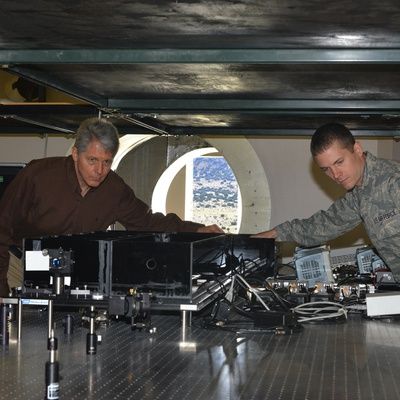
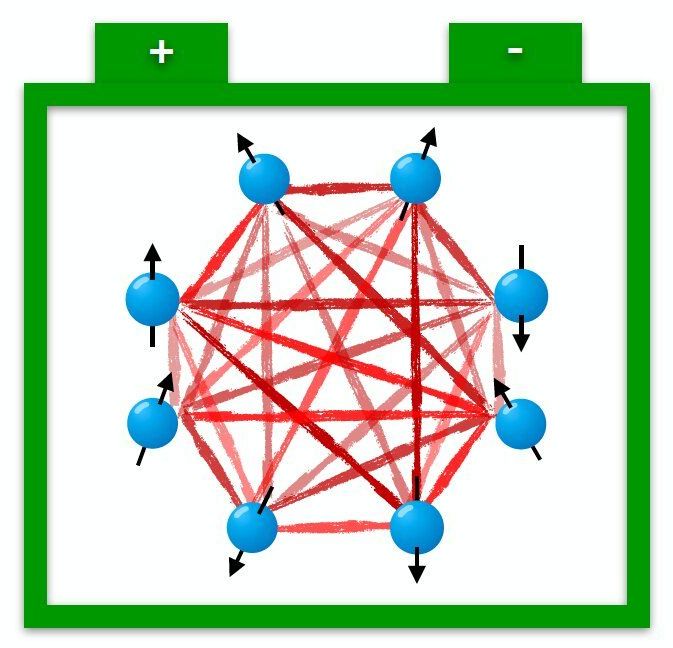
Using the SYK model to examine the fast-charging process of quantum batteries
The Sachdev-Ye-Kitaev (SYK) model, an exactly solvable model devised by Subir Sachdev and Jinwu Ye, has recently proved useful for understanding the characteristics of different types of matter. As it describes quantum matter without quasiparticles and is simultaneously a holographic version of a quantum black hole, it has so far been adopted by both condensed matter and high-energy physicists.
Researchers at University of Pisa and the Italian Institute of Technology (IIT) have recently used the SYK model to examine the charging protocols of quantum batteries. Their paper, published in Physical Review Letters, offers evidence of the potential of quantum mechanical resources for boosting the charging process of batteries.
“Previous theoretical studies laid down the idea that entanglement can be used to greatly speed up the charging process of a quantum battery,” Davide Rossini and Gian Marcello Andolina, two of the researchers who carried out the study, told Phys.org, via email. “However, a concrete solid-state model displaying such fast charging was missing, until now.”
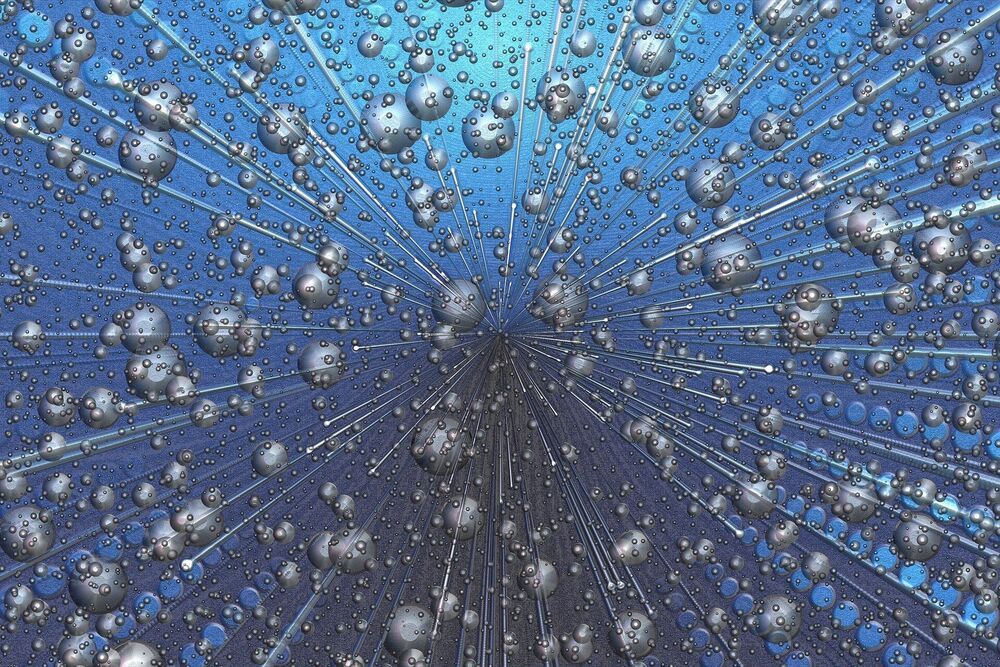
Researchers realize efficient generation of high-dimensional quantum teleportation
In a study published in Physical Review Letters, a team led by academician Guo Guangcan from the University of Science and Technology of China (USTC) of the Chinese Academy of Sciences (CAS) has made progress in high dimensional quantum teleportation. The researchers demonstrated the teleportation of high-dimensional states in a three-dimensional six-photon system.
To transmit unknown quantum states from one location to another, quantum teleportation is one of the key technologies to realize long-distance transmission.
Compared with two-dimensional systems, high-dimensional system quantum networks have the advantages of higher channel capacity and better security. In recent years more and more researchers of the quantum information field have been working on generating efficient generation of high-dimensional quantum teleportation to achieve efficient high-dimensional quantum networks.

The World’s First Quantum Phase Battery Is Here
O,.o circa 2020.
Their quantum phase battery consists of an n-doped InAs nanowire forming the core of the battery (the pile) and Al superconducting leads as poles. It is charged by applying an external magnetic field, which then can be switched off.
Cristina Sanz-Fernández and Claudio Guarcello, also from CFM, adapted the theory to simulate the experimental findings.
The battery is being further developed and improved at CFM premises in a collaboration between the Nanophysics Lab and the Mesoscopic Physics Group. These advances could contribute to enormous advances that many say will come from the field of quantum computing.

Birds Have a Mysterious ‘Quantum Sense’. For The First Time, Scientists Saw It in Action
Looks like living cells may have a lot more surprises to offer. 😃
Seeing our world through the eyes of a migratory bird would be a rather spooky experience. Something about their visual system allows them to ‘see’ our planet’s magnetic field, a clever trick of quantum physics and biochemistry that helps them navigate vast distances.
Now, for the first time ever, scientists from the University of Tokyo have directly observed a key reaction hypothesised to be behind birds’, and many other creatures’, talents for sensing the direction of the planet’s poles.
Importantly, this is evidence of quantum physics directly affecting a biochemical reaction in a cell — something we’ve long hypothesised but haven’t seen in action before.